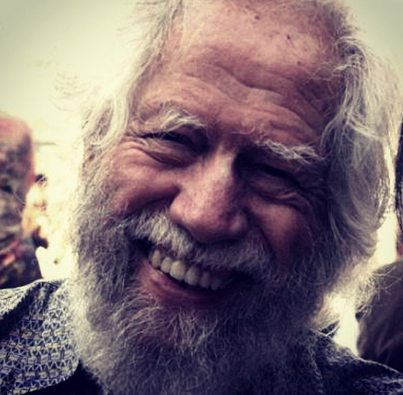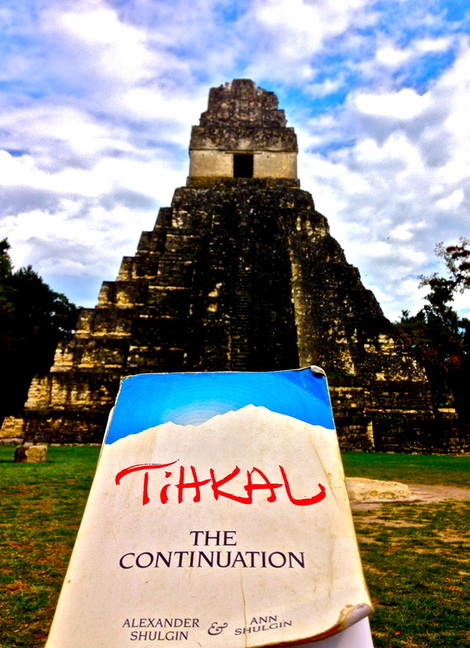The child prodigy and eventual psychedelic alchemist, Alexander Shulgin, enrolled in Harvard University at age 15. Never quite finding his footing there, he decided to enlist in the Navy after about a year-and-a-half. He spent a few years in a submarine destroyer in the North Atlantic hunting down German submarines reading and memorizing the only book he had on him—an Organic Chemistry tome. After the Navy, Shulgin went back to Berkley and enrolled in an organic chemistry class. After his organic chemistry midterm, his professor approached him in the hallway and explained to him that he doesn't need to take any more tests since he scored a 100 on an exam in which the class averaged was a 40. Shulgin ended up getting his Ph.D. as a biochemist at Berkley.
In the late 1950's he started working in the pesticide division at DOW Chemical. After a few years of working at DOW Chemical Shulgin helped them make a small fortune by developing a biodegradable insecticide. Right around this time this time, Shulgin had his first encounter with the psychedelic chemical, mescaline. He had a life-altering experience which was probably responsible for rerouting his life in the radically weird direction it took.
In a conversation with Sasha, Terence McKenna modestly pointed out, "You've probably seen more uncharted internal landscape than half of mankind put together." This isn't an immodest claim, considering that Shulgin has tripped on hundreds of his psychedelic chemical creations approximately 4,000 times. It's important to note that Shulgin had a recognition that these materials are catalytic. That these various psychedelic chemical compounds act as molecular keys that are able to open and unravel profound experiences and knowledge that are already embedded within you.
"It is meaningful to say that I ceased to exist, becoming immersed in the ground of Being, in Brahman, in God, in 'nothingness,' in Ultimate Reality, or in some similar religious symbol for oneness. The feelings I experienced could be best described as cosmic tenderness, infinite love, penetrating peace, eternal blessing and unconditional acceptance on one hand and, on the other as unspeakable awe, overflowing joy, primeval humility, inexpressible gratitude and boundless devotion. Yet, all of these words are hopelessly inadequate and can do little more than meekly point toward the genuine, inexpressible feelings actually experienced. It is misleading even to use the words, 'I experienced,' as during the peak of the experience (which must have lasted at least an hour) there was no duality between myself and what I experienced. Rather, I was these feelings, or ceased to be in them and felt no loss at the cessation. Four days after the experience itself, I continue to feel a deep sense of awe and reverence, and am simultaneously intoxicated with an ecstatic joy. The euphoric feeling is in no sense analogous to hebephrenic giddiness; it included elements of profound peace and steadfastness, surging like a spring from a depth of my being which has rarely, if ever, been tapped prior to the drug experience."
Sasha: But if it's needed you have it. That's the beauty. The tool is there for the time where the need is obvious. And it's maybe in our lifetime.
McKenna: So essentially what you're doing is placing tools on the shelf. Screwdrivers for screws that haven't been invented, yet.
— Alexander Shulgin


 RSS Feed
RSS Feed
